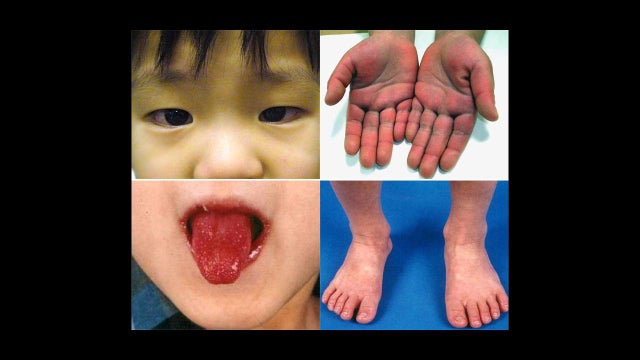Kawasaki is a very common type of viral infection in cats. Because it affects the lymphatic system and causes swelling and fever, Kawasaki virus is sometimes considered to be closely linked to a viral infection. However, it can also happen in cats that have an inherited predisposition for the condition. The virus is rarely contagious, and the cat usually recovers on its own. If your cat develops Kawasaki, you should consider treating your cat at once.
Kawasaki is a herpes simplex virus that attacks the central nervous system. The virus attacks the nervous tissue and causes fever, depression, muscle weakness, loss of appetite, weight loss, fatigue and muscle weakness. The symptoms of Kawasaki virus often disappear on their own, but you should take your cat to the vet immediately if the cat is showing any of these signs. Untreated Kawasaki can lead to seizures, coma or death.
Because your cat is infected with this virus, his immune system has been weakened and he is more susceptible to other diseases. Your cat is vulnerable to various infectious agents like virus, bacteria, parasites and fungi. When your cat becomes infected with Kawasaki virus, he will experience flu-like symptoms including: vomiting, diarrhea, dehydration, fever, headache, and loss of appetite.
Since Kawasaki virus affects the nervous system, it can cause seizures in your cat. If seizures occur in your cat, you should take him to the vet as soon as possible.
The virus is a retrovirus, which means that it came from another source before it infected your cat. It can be passed from animal to animal or human to human. There are different strains of this virus that affect different animals. The most important strain is the KPCV or the kitty pooch virus. This virus is responsible for most cases of the disease in cats, but other strains can also be responsible.
If your cat is infected with the Kawasaki virus, the first thing you should do is take it to the veterinarian for a diagnosis. He or she will take blood tests to determine the strain of the virus. A fluid sample from the cat's blood or urine can be taken to determine the type of strain. The veterinarian will be able to tell you what to expect from the cat in terms of symptoms and recovery time. If the strain is KPCV-R5, your veterinarian may recommend treatment to eliminate the virus from your cat.

Treatment for Kawasaki may include medications such as: acyclovir, ampicillin, ketoconazole, cefadroxil, cotrimoxazole, milbemycin, phenamticin, tetracycline, piperacillin, etc. Your veterinarian may also prescribe intravenous fluids. Your veterinarian may prescribe an antibiotic or antihistamine. In most cases, you can give antiviral drugs to prevent your cat from relapsing the virus. Your veterinarian may also recommend that your cat take vitamin E. You should also use gloves when handling your cat. This will help reduce the chance of infection.
If you suspect that your cat may have the Kawasaki virus, you should take your cat to the veterinarian as soon as possible and consult the site ACN Portal Web De Salud. Do not delay, even if symptoms do not improve. and don't try to treat a cat that seems to be getting better. You should contact your veterinarian immediately.
Some people believe that it is better to treat a kitten than to try to remove Kawasaki from a cat's body. But once your cat is infected with the virus, it's too late. You should not try to remove it from your cat's body when your cat has the virus.
Symptoms of Kawasaki include lethargy, fever, weight loss, vomiting, diarrhea, depression, and fever. Your veterinarian will order a blood test to determine if your cat has the virus. If the test is positive, the veterinarian will prescribe treatment for the virus.
After treating the virus, you can boost your cat's immune system by providing her or her with a balanced diet that includes vitamins, minerals, and protein. Because the cat's immune system has been strengthened, it will be less likely to get the virus again. In some cases, the veterinarian may recommend a course of antibiotics such as amoxicillin or penicillin. In other cases, he or she may simply recommend antibiotics to prevent your cat.
Leave a Reply